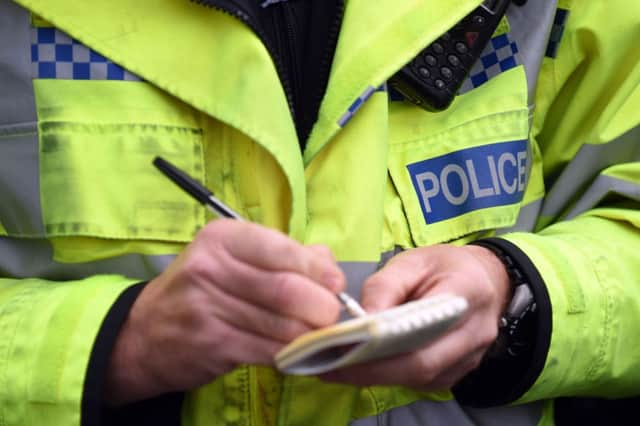‘Radical police reforms needed’ as complaints soar


The system needs to be “fair, accessible and transparent”, Independent Police Complaints Commission chairwoman Anne Owers said after it was revealed 34,863 complaints were made about forces in England and Wales in 2013/14.
Of the 43 forces covered 38 had an increase in complaints compared with 2012/13, according to an IPCC report released today.
Advertisement
Hide AdAdvertisement
Hide AdThe figures represent a 52% increase in complaints since 2004/05.
West Yorkshire Police was the eighth most complained-about force, with 1,000 complaints in 2013/14, 24% up on the previous year.
Dame Anne said a current review of the system was welcome, adding: “The rising number of complaints makes it all the more important that the system is, and is seen to be, fair, accessible and transparent.
“Better public confidence in policing crucially depends on confidence that, where things may have gone wrong, appropriate action will be taken as soon as possible.
Advertisement
Hide AdAdvertisement
Hide Ad“It is clear from these statistics that forces still struggle to get it right first time, and there are now serious questions about whether they get it right the second time either.
“We will continue to work with them to improve complaints handling. But that is not enough. We urgently need radical reforms to the system as a whole, to make it more accessible and straightforward, and to strengthen independent oversight.”
Dame Anne questioned the way forces handled appeals against complaints dealt with internally, saying the figures add to the IPCC’s concerns about forces having the power to do this in less serious cases.
The number of upheld “non-recording appeals” - appeals against a force’s decision not to record a complaint as having been made - fell to 49% in 2013/14 from 57% in 2012/13, with appeals upheld in 44% of cases where complaints had been recorded.
Advertisement
Hide AdAdvertisement
Hide AdDame Anne said: “There are also considerable differences between forces, in the number of initial complaints they uphold, and the number of their decisions we overturn. As we have said many times, this reflects a complaints system which is complex, bureaucratic and over-focused on blame.”
She added: “It is clear that forces uphold a much lower proportion of appeals than the IPCC. For example, during this period, forces only upheld 22% of appeals against their own investigations - only half the proportion that the IPCC upholds.
“These are different and less serious cases, but these figures will not inspire public confidence that those appeals were dealt with robustly and fairly.”
The Metropolitan Police, the UK’s largest force, had the most complaint cases last year with 7,115, IPCC figures show. It was followed by Greater Manchester Police (1,536), West Midlands Police (1,473), Devon and Cornwall Police (1,364) and Kent Police (1,200).
Advertisement
Hide AdAdvertisement
Hide AdThe largest percentage increase in complaint cases year on year was recorded by Northumbria Police, which went from 401 complaints to 794, a rise of 98%, followed by City of London Police, where complaints rose 90% from 123 to 234 between 2012/13 and 2013/14.
The number of recorded allegations about police conduct rose by 10% to 61,694 last year, the IPCC said. More than one allegation can be included in a complaint “case” and the watchdog said some of the increase was due to the broadening of the definition of a complaint.
The largest single category for complaints was “neglect or failure in duty”, which made up 30% of allegations.
“Incivility, impoliteness and intolerance” made up 15% of allegations and 5% were for “unlawful/unnecessary arrest or detention”.
Advertisement
Hide AdAdvertisement
Hide AdAlthough the number of complaints per year has fluctuated over the past 10 years, the 2013/14 figure is the highest recorded since 2004/05, the IPCC said.
The IPCC said 37,032 people in police forces were the subject of a complaint, up 6% from 34,897 in 2012/13. Of these 88% (32,873) were serving officers, 73% (27,161) were men and 88% (32,407) were white.
Cleveland Chief Constable Jacqui Cheer, the Association of Chief Police Officers’ (Acpo) national policing lead for professional standards, said: “We police by public consent so it is always disappointing when somebody is unhappy with the service they have received. We take complaints very seriously and will always listen to and take heed of those who come forward to report any dissatisfaction.
“The Home Office is currently consulting on a review into the way that complaints are handled. We welcome any recommendations that help us to improve our service to the public.”